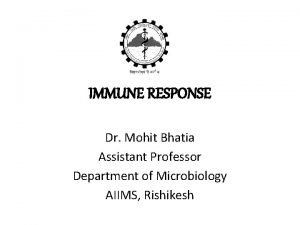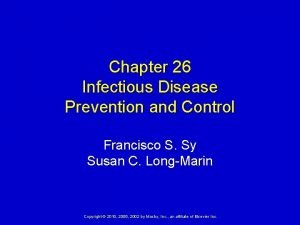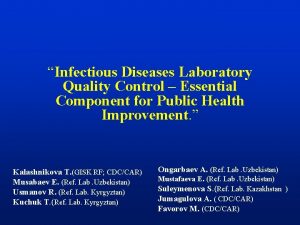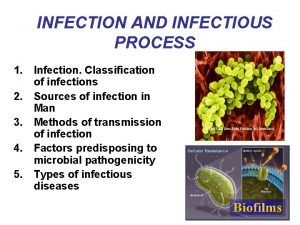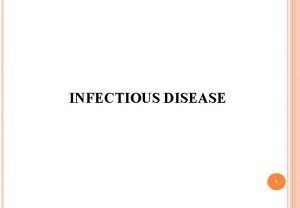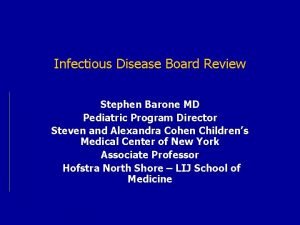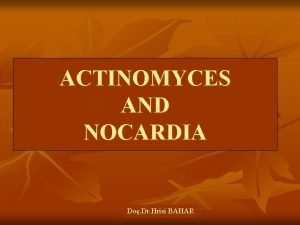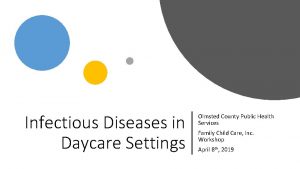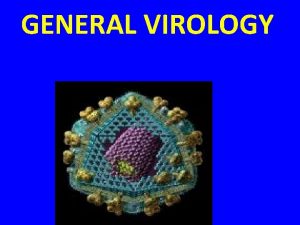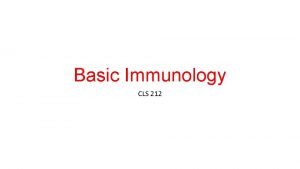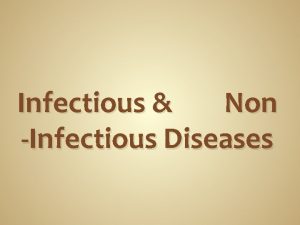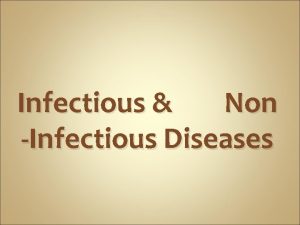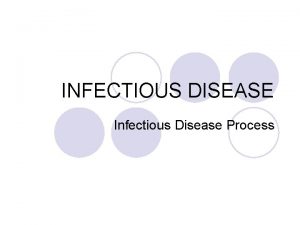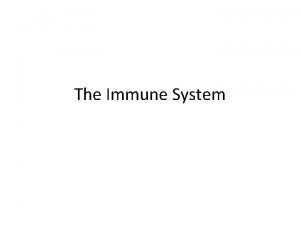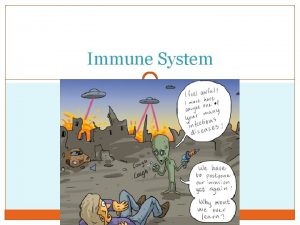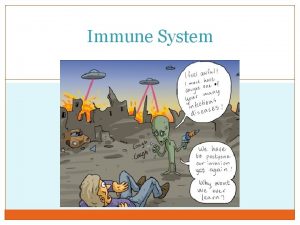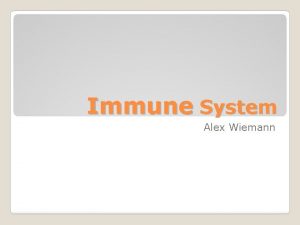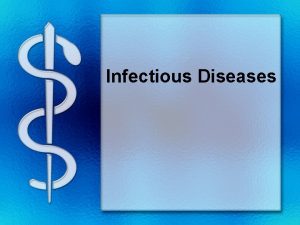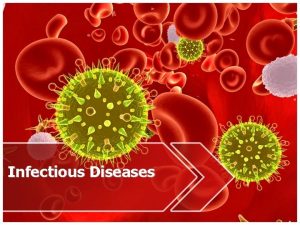The Immune System and Disease Infectious Disease Disease











- Slides: 11

The Immune System and Disease

Infectious Disease • Disease = any change, other than injury, that disrupts normal functions of the body. – Causes of disease: bacteria, viruses, fungi, environmental factors, and some are inherited • Any disease-causing agents are called pathogens

Immune System • The immune system is the body’s main defense against pathogens • It fights infections through the production of cells that inactivate foreign substances or cells

Immune response • Anything that is not supposed to be in our bodies that threatens our homeostasis are identified by molecules on their surfaces • The molecules that are on the surface of these invaders that trigger the immune response are called antigens

Antibodies • Plasma cells release antibodies which are proteins that recognize and bind to antigens • Antibodies travel through the blood and attack the pathogens • Once your immune system makes antibodies for an antigen, it has memory cells that can rapidly produce these antibodies if the same antigen enters the body again.

Antibodies

Transplants • T cells kill your own cells when they become cancerous or infected by a virus • When you get an organ transplant, your immune system recognizes it as foreign and attacks it • To prevent this, doctors try to find a donor who’s cell markers are nearly identical to the markers of the recipient. • Recipients must take drugs to suppress the immune system so an attack is avioded

Vaccination • The injection of a weakened form of a pathogen to form immunity is know as a vaccination • Your body will make antibodies to the pathogen and when you come in contact with it again you will be able to make those antibodies rapidly and kill the pathogen quickly

Immune System Disorders • Allergies = an over reaction of the immune system – Your immune system reacts to objects that are not harmful: pollen, dust, mold. . .

• Asthma = a chronic respiratory disease in which the air passages become narrower than normal • Autoimmune diseases= when the immune system makes a mistake and attacks the body’s own cells

AIDS • AIDS is an immunodeficiency disease that is the result of a viral infection that destroys helper T cells • When the number of helper T cells decreases the normal immune response breaks down • This leaves the body defenseless against other pathogens • The virus responsible is HIV (human immunodeficiency virus)
 A subsequent
A subsequent Chapter 35 immune system and disease
Chapter 35 immune system and disease Chapter 26 infectious disease prevention and control
Chapter 26 infectious disease prevention and control Infectious disease quality controls
Infectious disease quality controls Periods of infectious disease
Periods of infectious disease Stages of infectious disease
Stages of infectious disease Stridor
Stridor Infectious disease
Infectious disease Hennepin county infectious disease manual
Hennepin county infectious disease manual What is the smallest infectious agent
What is the smallest infectious agent 1st 2nd and 3rd line of defense immune system
1st 2nd and 3rd line of defense immune system Lesson 12.1 lymphatic ducts and vessels
Lesson 12.1 lymphatic ducts and vessels
